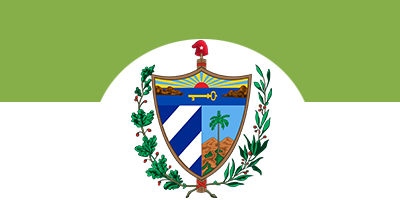Guidelines for the selection process of students in Cuba for the 2017-2018 Undergraduate Course.
The policy of promoting other financing means for studies in Cuba is maintained.
It is important to emphasize the importance of the student selection process, as it has a direct impact on the results to be obtained in the training of the students.
Guidelines for the selection process:
1.- Granting of scholarships
- The scholarships offered by the Diplomatic Representation must be convened by the Board of Directors of the Mission, and the Head of the Mission is totally responsible for the process.
- If a foreign organism or institution is in charge of the student selection process, our representation must be part of and be very aware of the process.
- Consult the Directorate of Collaboration that Cuba offers at MINCEX in case of any doubt that arises in the selection process. Emphasis should be placed on the social status of students and the fulfillment of the requirements, so that the candidates with scarce resources and socioeconomic conditions that prevent them from attending university studies in their country will really benefit and commit themselves to their community.
2.- Established Requisites
The requirements to be met by foreign students benefiting from a scholarship to study in Cuba are:
- A) Be under 25 years of age.
- B) Be a High School or College Graduate.
- C) The student must come from a low income family, who cannot afford to pay for the studies and preferably come from communities in the interior of the country.
- D) Certificate of Health with negative HIV tests. In the case of females, it is also required that they have a certificate that ensures they are not pregnant.
- E) Documents certifying that he/she has no criminal record.
3.- Documents that must be included in the student file.
- A) Copy of the High School Certificates. For the careers of Exact, Economic and Natural Sciences, students must graduates of Science or with a similar Certificate.
- B) Copy of transcripts of the last year of High School.
- C) Original Health Certificate, including negative HIV and a certificate that the females are not pregnant.
- D) Original Certificate of Criminal Record.
- E) 10 photos ID type 1 x 1 cms.
- F) New Student’s Accreditation Form with commitment inclusive of payment of return ticket in case of withdrawal, for whatever reason. (Attached to this information).
- G) Code of Ethics.
4.- Process of legalization of the documents that make up the Student record.
- The Embassy should thoroughly review the documentation of each student, who must provide a photocopy of the Certificates and transcripts, and originals of the rest of the documentation.
- The documents must be duly legalized by the Ministries of Health, Education and Justice – as appropriate – and all by the Foreign Ministry of that country, to be later legalized by our Diplomatic Mission, exempt from payment.
- The student will have to travel with his documentation and upon arrival in Cuba he will deliver it to his Study Center.
- The Cuban mission is responsible for the fact that no student travels without the documents indicated in Rule number 3, otherwise the young person will return to his / her country.
5.Career change Prohibition.
The Diplomatic Mission will inform students that career changes will not be permitted, according to the rules established in the Regulations of Foreign Scholarship Holders, only in very exceptional cases, duly evaluated (Resolution 26/2012 of the MES). In this case, the students, as well as the Head of the Mission, must sign the original and copy of the Accreditation Form. The original will be delivered by the student upon arrival in Cuba to the official who is in charge of the reception of the students and the copy will accompany the other documents that make up the student’s file, duly stamped, and delivered by the student to the Teaching Secretariat of his/her Study Center.
6.- Rules that Scholarship Holders must be aware of.
- Students should read the Code of Ethics and sign it certifying that they are knowledgeable about its contents and that they must abide by it.
- At this stage of the process, it is imperative that our Missions inform and update students about the situation in our country. It should be emphasized to them the effort made by our people and Government to maintain for more than 45 years the Scholarship Program.
- The student will be given a copy of the Regulations for Foreign Students at the Higher Education Centers in Cuba (Resolution 26/2012) of the Ministry of Higher Education and a copy of the Customs Regulations.
7.- Arrival of selected students.
Spanish-speaking students who will undertake medical courses must arrive in Cuba during the last week of February and non-Hispanic speakers during the last week of August.
Non Spanish-speaking students who undertake MES careers must arrive in Cuba between September 20 and 30 of the current year.
The Missions must inform the Directorate of Collaboration that Cuba offers at MINCEX of the names, surnames and sex of those selected at least 10 days before their arrival in Cuba.
The missions must inform the training agencies responsible for receiving these scholarship holders about the route, time of departure and arrival in Cuba, as well as the airline that is used, with a copy for the Collaboration Directorate that Cuba offers at MINCEX, a week before arrival.
8.- Visa granted to foreign scholarship holders.
The Visa to be granted by our Mission is the type D-2, exempt from payment. This entry permit is authorized by the Collaboration Directorate that Cuba offers at MINCEX, once the names of the students have been received.

